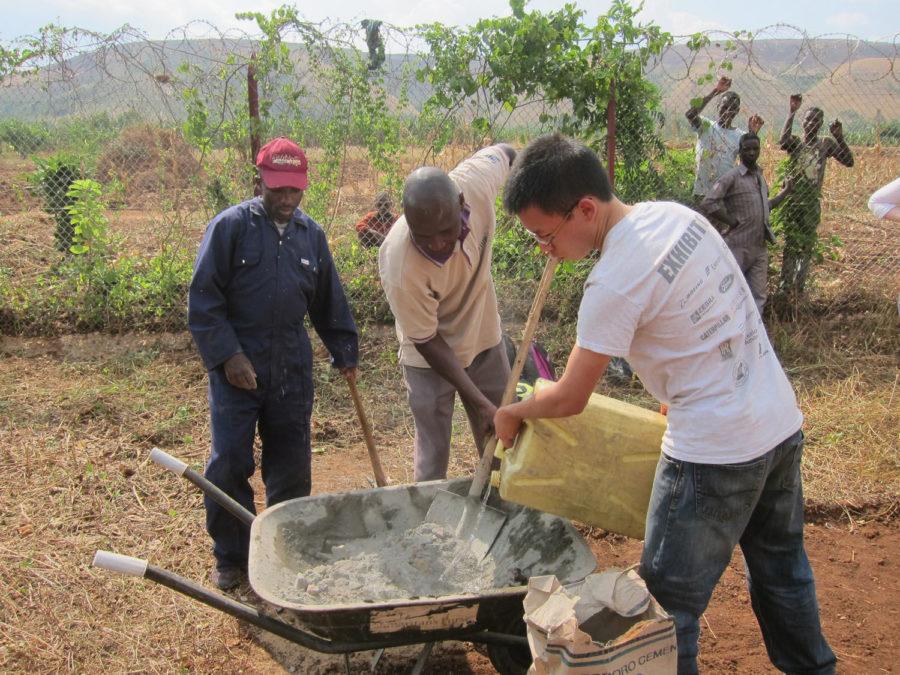Engineering students travel to Uganda, Kenya for water sanitation project
Students in a civil and environmental engineering class work on designing water, sanitation and energy systems in Kenya and Uganda as part of a class trip. They visited clinics, tested water quality and met and talked to the people their efforts would help.
Feb 25, 2015
To Lauren Valentino, graduate research assistant in civil and environmental engineering, experiencing basic struggles firsthand, such as finding access to water and sanitation, helped her realize how “good we have it here.”
In mid-February, graduate and undergraduate students in civil and environmental engineering took trips to Kenya and Uganda to develop systems involving water supply, sanitation and energy.
The trip, offered to students enrolled in an environmental engineering lab, CEE449, was led by Benito Marinas, civil and environmental engineering professor. Students taking the class worked in groups to design a system that focuses on learning the needs, resources and struggles of communities in developing countries. Benito described the systems the students designed as meaningful because the class allows the students to interact with the community that they designed the system for.
Marinas said the class continues to develop partnerships with the Safe Global Water Institute and the Uganda Rural Community Support Foundation.
This year three students and two faculty members traveled to Nairobi and Nakuru, Kenya from Feb. 6 to 12. Benito said this area has serious difficulties with water supply, sanitation and energy sources. The students visited locations such as the Nakuru Defluoridation Company to take water samples for analysis from Lake Baringo.
Get The Daily Illini in your inbox!
After the Kenya trip, nine different students from the class traveled to Uganda from Feb. 14 to 21. The students worked in the Oruchinga Refugee Settlement, located in the Isingiro district in South West Uganda. Students visited health clinics and conducted water quality testing in wells and large water sources.
This was the second trip to Uganda for the overall program and the fourth trip to East Africa. As Marinas said, “this trip motivates you to play a more important role in the world.”
Gabrielle Levato, senior in Engineering, said her civil and environmental engineering classes are focused on the technical aspects of water quality and teaching how to treat the water.
“When you actually go to Uganda and needed to test everything, to see how much fluoride or how much iron, that’s applying our knowledge,” Levato said.
She chose to apply for the trip because she wanted to meet the people who the project would benefit.
“I think it is really important to see their firsthand experience and see what their lives are like,” Levato said. “Being able to visit the homes of the people we are designing for is extremely beneficial to our future design and what we recommend in the end.”
Marinas said they took a lot of equipment with them to analyze water sources and identify contaminants in the water. They also looked at the issue of sanitation and the kinds of sanitation facilities available. It was discovered that at Oruchinga, that refugees were using collapsed latrines due to low soil quality.
In total, the teams consisted of five graduate and Ph.D members and 12 undergraduate students, Two faculty members attended, including Marinas and Jeremy Guest, civil engineering professor who is an expert in sanitation.
“Not only is this a lab class for our senior undergraduate students, but its very unique in that its giving students the opportunity to see first hand the challenges that they are going to face,” Valentino said. “To actually meet the people that they are going to impact when providing a recommendation or providing a solution.”






